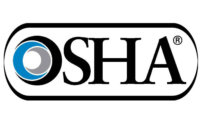Optional industrial safety certifications can help improve workplace safety and preparedness – and communicate the fact that a company goes above and beyond to keep their employees safe. Here are six safety certifications that industrial businesses should strongly consider getting.
1. The American Heart Association's Heartsaver Bloodborne Pathogens certification
This is a course that the American Heart Association (AHA) offers for people who have a reasonably high chance of coming in contact with blood during their professions. It's useful for at least a few people at an industrial business to have due to the hazards that blood could contain for people who don't know how to deal with it safely.
Students learn things such as how to use personal protective equipment, the correct way to clean blood from an area and how to notify supervisors of an event that causes potential exposure to bloodborne pathogens. After course completion, learners receive a two-year certification in the subject.
Moreover, the AHA offers an online course, or people can purchase materials to teach the topic in a class.
2. The Board of Certified Safety Professionals' Safety Trained Supervisor certification
This is a course intended for leaders at any level of an organization who have safety-related duties that are directly or indirectly part of their jobs.
The prerequisites for this certification are that the person must have gone through at least 30 total hours of safety/health training. Moreover, they need either two years of experience as a supervisor, or four years of work experience in their industry, gained through employment consisting of at least 18 hours per week.
Then, to earn the certification, a person must pass a 100-question, closed-book exam. Each multiple-choice question has four possible responses, and only one correct answer.
Recertification takes place every five years and happens when candidates show evidence of taking a sufficient number of credit hours of safety courses to keep their knowledge current.
3. The ISO 45001 Standard certification
ISO 45001 is an internationally recognized standard companies for companies to meet ad show that management takes a top-down approach to maintain a safety culture. More specifically, the certification relates to the management systems for occupational health and safety.
It requires introspection and evaluation so that a company can determine where it currently stands regarding its safety practices. Candidates must also do an in-depth examination of things like emergency preparedness responses and hazard identification. Unlike the other courses here that are for individuals, a firm's members work together to get certified.
4. The National Association of Safety Professionals' Certified Safety Manager option
This is an excellent solution for anyone involved in high-level safety enforcement at a company who wants to dive into the subject matter through an in-depth educational experience. People must complete 30 hours of training that teaches them how to create an implement safety procedures and safety programs at their companies.
Some of the matters covered in the content include avoiding civil and criminal liabilities, understanding regulations and eliminating workplace injuries.
People do not need to fulfill prerequisites before enrolling for certification, but it's helpful for them to have a fundamental understanding of workplace safety. Additionally, after receiving their certificates, participants can teach some of the courses the National Association of Safety Professionals offers.
5. OSHA's Fall Protection course
According to OSHA, falls are the number-one reason for construction industry fatalities. And, falls are risks for any industrial business to consider whenever workers complete tasks at a height or encounter slippery surfaces.
OSHA has a Fall Protection course, known officially as OSHA #3115. Interested parties can look for it taught at community colleges and other local facilities.
It's an 18-hour course, and students learn things such as how to use and inspect fall protection equipment. Creating a fall prevention program in the workplace is also covered. That's a crucial responsibility for companies to handle that could safeguard workers and keep the workforce productive.
6. The National Safety's Council's Advanced Safety Certificate
People enrolled in this course finish 12 days of training. The curriculum encompasses both 4-day courses and classes that last only one day. After finishing a mandatory 4-day course called Principles of Occupational and Health participants choose from an available assortment of topics and ensure that the timeframes meet the 12-day minimum.
Another thing to note is that people have a 5-year window to complete their training days. That could be helpful for people who are interested in pursuing career development but have exceptionally busy schedules.
Showing a commitment to safety
These six certifications could help companies and the employees that work for them show that they take safety seriously.
Then, the public, as well as prospective employees, is more likely to perceive the company as one that makes workplace safety a priority rather than an afterthought.







